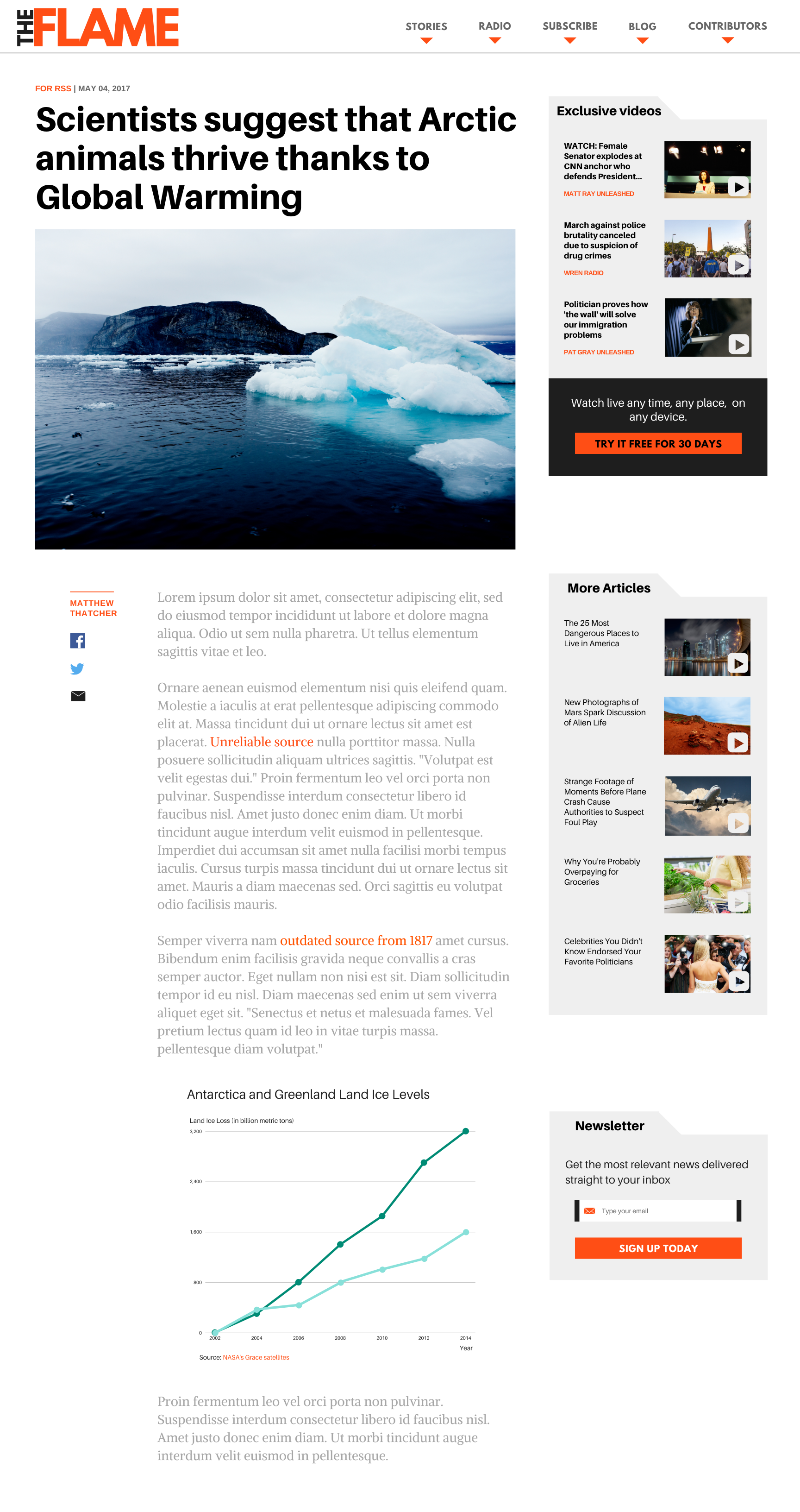

Some novices admitted that a biased source didn't concern them, showing their confirmation bias: "since I agree with their view, it doesn't bother me so much."

Novices noticed the abundance of hyperlinks and thought this provided credibility because the author "clearly cited the origin of the information." These novices did not realize that the links did not direct the reader to reputable sources.

39% of students were convinced by the graph: "It's got a graph…numbers generally are convincing" and "The graph makes it seem more reliable because it's from NASA."

9% of students analyzed the way the argument was constructed: "They seem to be taking conclusions and changing the information to suit what they’re trying to prove."

6% of readers discovered that the article "didn't link to credible primary sources" and that "they cited a science report [from] 1817."

Only 5% noticed that the graph didn't link to the article's claims: "The information that they use from really credible sources, like NASA, don't have anything to do with the welfare of the animals, they just prove that the ice is melting." Another student found that "The chart does not back up their claim at all."